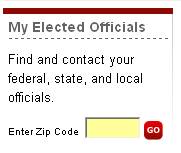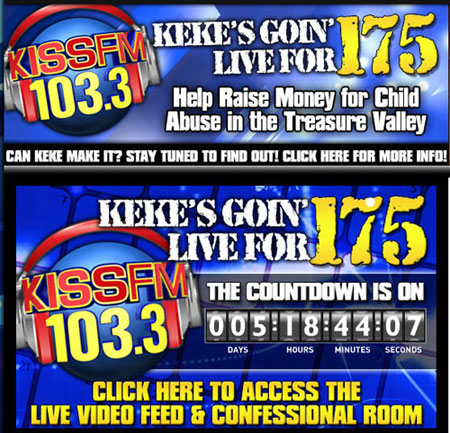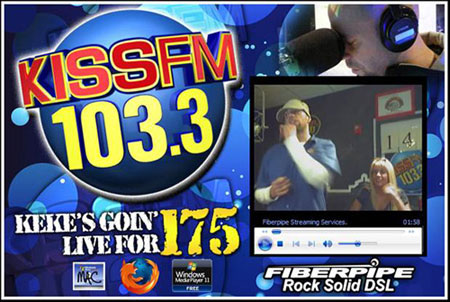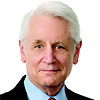-
How Local Are You?
April 4, 2008
Have an opinion? Add your comment below. -
Tell the FCC Now ... Or Get Out Of Town!
Comments to FCC on Broadcast Localism due April 23
How You Can Make a DifferenceIt's not often that you hear a lawyer say, "You don't need me; do it yourself." Yet that's exactly what I'm telling you today. I'm not saying don't use your FCC lawyers - yes, you should! (And, of course, pay them handsomely!)
But, in this matter, your own thoughts and record of service will do more to persuade the Commission to do the right thing than the wordsmithed phrases of your consigliere.
The deadline date for filing Comments is April 28, 2008.
The deadline date for filing Reply Comments is June 11, 2008.Here is a description of what the docket is about, followed with instructions on how to submit your comments.
BACKGROUND
Following a multi-year inquiry, including six related field hearings, in The Federal Communications Commission has issued its Report on Broadcast Localism, combined with a Notice of Proposed Rulemaking in which it contemplates significant broadcasting re-regulation in a number of areas important to you. Here's what the Commission concludes:
"... the record indicates that many stations do not engage in the necessary public dialogue as to community needs and interests, and that members of the public are not fully aware of the local issue-responsive programming that their local stations have aired.
* * *
"... we conclude that modification of certain of our rules, policies and practices may be necessary to address the deficiencies of many broadcasters in meeting their obligation to serve their local communities."
You can read the entire report, in either Word or PDF at one of the following links.
http://hraunfoss.fcc.gov/edocs_public/attachmatch/FCC-07-218A1.doc
http://hraunfoss.fcc.gov/edocs_public/attachmatch/FCC-07-218A1.pdfIf fully implemented, the FCC proposals would place a number of costly and burdensome new regulatory requirements on all broadcasters. All stations could be required to air local news and other public affairs programming based on predetermined categories and benchmarks that would be considered in the renewal time. In many cases, if adopted, these proposals would have the opposite effect from what is intended, actually reducing local service at some stations.
Below is a summary of the major proposals in the FCC NPRM. Below that are instructions for submitting your comments. Click on the options for alternative ways for you to make your voice heard at the FCC. Read this carefully and act on behalf of your station and for the benefit of all broadcasting. Take a look at one example of material to submit at the end of this article.
The Commission's Report addressed matters under a wide variety of topics and proposes specific initiatives in four major areas:
Advisory Boards -- The Commission proposes requiring broadcasters to convene a permanent advisory board made up of officials and community leaders at least on a quarterly basis. The composition of the board may be regulated to assure inclusion of all significant segments of the community.
Suggestions -- This sure sounds a lot like the community ascertainment of the 1970s, with its requirement to interview community leaders for their thoughts on how stations should address local issues of public importance through their stations. Tell the Commission about the creative ways you already seek out community leaders and identify issues of public importance. Tell your story of how you utilize that advice in developing programming and community service campaigns. Relate the successes you've achieved. If you had to run these advisory boards, why would that dampen your time and ability to continue what you've been doing.
Standardized Disclosure Forms - The Commission would change the quarterly issues-programs lists now created from the broadcaster's judgment of what is important to a specific listing of all programming categorized by national news, local news produced by the station, local news produced by others (who must be identified), local civic affairs, local electoral affairs, independently produced programming, other local programming, public service announcements, paid public service announcements, programs aimed at serving the needs of underserved demographic segments, and religious programs aired at no charge. It would also require a description of licensee efforts to determine program needs of its community, information concerning close captioning and video description services, and a list of all broadcasts conveying current emergency information.
Suggestions -- Explain whether more detailed forms will help or hinder your efforts to provide quality local programming addressing the public service needs of your community. How comfortable will you be leaving out a category in your submitted form, and would that reduce an all-out effort in another area? Would pre-determined program categories help, or hinder your station's meaningful responsiveness to community needs? Would you have to forgo helpful programs to meet predetermined category quotas? Should all stations have to meet quantified levels of programming by category?
Main Studios and Unattended Operation -- The Commission proposes to reinstitute much of the old Main Studio Rule, including origination of a majority of non-network programming and eliminating unattended station operation. The main studios would have to be located within the community, rather than within 25 miles or the contour of any other station licensed to the community, as is presently allowed.
Suggestions -- This proposal is considered by many to be the most onerous of all. Many years ago, I represented a group of broadcasters dubbed the "Arizona Justice Committee," who fought to bring an end to the old fictions required for compliance with the Arizona waiver. There has been no credible evidence requiring a station's main studio to be located within its community's boundaries, rather than within 25 miles of it, has any positive correlation to the quality of local service rendered by that station. The prior rule was impractical and resulted in many waivers, known as Arizona Waivers. Perhaps the most critically important shortcoming of these proposals is the burden they would place on small-market broadcasters struggling to survive and serve their audiences. Requiring them to have separate studios for multiple station operations serving small, but nearby communities, and to have a staff presence during all hours of operation could bring about less service. Some have told me they would have to cease nighttime broadcasts. Tell your story and explain why this proposal could curtail, rather than enhance service.
Renewal Programming Guidelines -- The Commission would reintroduce renewal application processing guidelines for locally-oriented programming.
YOU CAN MAKE YOUR VOICE HEARD
The FCC said that it wants to hear from broadcasters, but it can only take your views into account if you provide them as comments in the official docket. As of this past weekend, there have been a little over 85,000 comments submitted in this docket. You can read them all at:
http://gullfoss2.fcc.gov/prod/ecfs/comsrch_v2.cgi In box number 1, type 04-233 and click on

Here is how to add your voice to comments filed at the FCC or to advise your congressional delegation:By Internet:
The best and easiest way is to file your comments by internet on the FCC website. Go to the FCC web by clicking here FCC Electronic Comment Filing System.
In the 1., box marked
 you must enter 04-233
you must enter 04-233
Then complete all the (required) entries and as many of those marked (optional) as may wish.You may then either:
(1) Type comments in the text box at the bottom of the web page marked "Send a Brief Comment to FCC (typed-in)," or
(2) Upload a document using the box marked "Send Comment Files to FCC (Attachments)." The file you upload must be on your computer in PDF, Word, ASCII, Excel, WordPerfect or Lotus 123. You must designate the uploaded file's type in the drop down box,
 then click "on."
then click "on."By Mail
Compose your comments. Be sure to prominently reference the docket number, place the docket MB Docket No. 04-233 at the top or in the re: reference line of the letter. Comments in Response to Localism Notice of Proposed Rulemaking. Send your letter via the US Postal Service to:
The Secretary
Federal Communications Commission
445 12th Street, SW
Washington, DCIf you mail, send early, because they must arrive by April 14th to be considered.
Write your Senators & Members of Congress
Your Senators and Members of Congress want to hear from you. Tell them why these FCC proposals will have the effect of reducing local service to your listeners and require station revenues to be spent on regulatory compliance rather than improved programming.
You can find your Senators at:
http://senate.gov/general/contact_information/senators_cfm.cfm
and your Congress Member at:
https://forms.house.gov/wyr/welcome.shtmlTo find your elected officials and for other Options to spread the word:
Click on http://www.congress.org/congressorg/home/ and place your zip code in the box on the left column.

In your comments, send the Commission materials that symbolize the kinds of contributions you're making to your local communities with your broadcasting stations. Here's an example from a Boise, Idaho station, where local personality KEKE is broadcastiong live for 175 hours without sleep to raise money and awareness for child abuse treatment. If you have something like this, submit it for the record as shown above, and explain what you've done for your community.
See it live here: www.1033kissfm.com



And this on their blog:
April 5th, 2008 by Don@IdahoRadio

Never let it be said I don't change my mind.
When KSAS/103.3 Kiss FM announced it would have DJ Steve Kicklighter stay live for 175 straight hours... I rolled my eyes and went "oh brother." When I found out it was supposedly to help prevent child abuse awareness, I thought it could border on taking advantage of a touchy cause.
I was wrong. Kickligher - aka KeKe Luv has been going strong for 77 hours as of this writing (and I had 72 hours in the pool ... so I lose). Have you been listening? It has really been incredible radio. Kickligher has been funny, energetic, and the stories and information about child abuse have been poignant and touching. I was at breakfast with some friends today; several who don't know about my work on this site. One friend noted that "I bet it gets people to listen for longer than usual." I agree -- look for KSAS' TSL to jump. Listeners want to hear how this goes - they want to hear him mess up, and they want to follow along on the web cam.
This column is provided for general information purposes only and should not be relied upon as legal advice pertaining to any specific factual situation. Legal decisions should be made only after proper consultation with a legal professional of your choosing.
-
-

